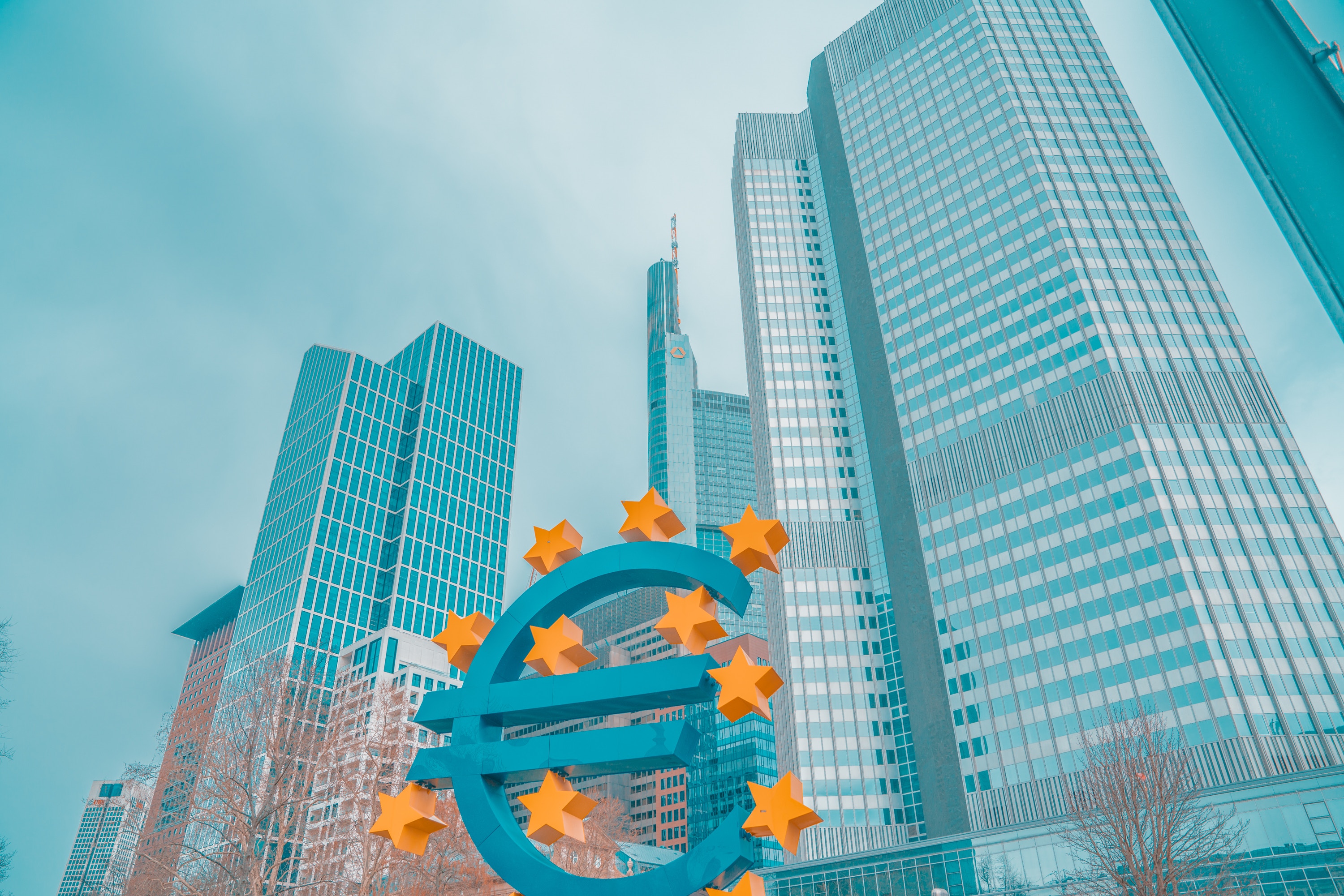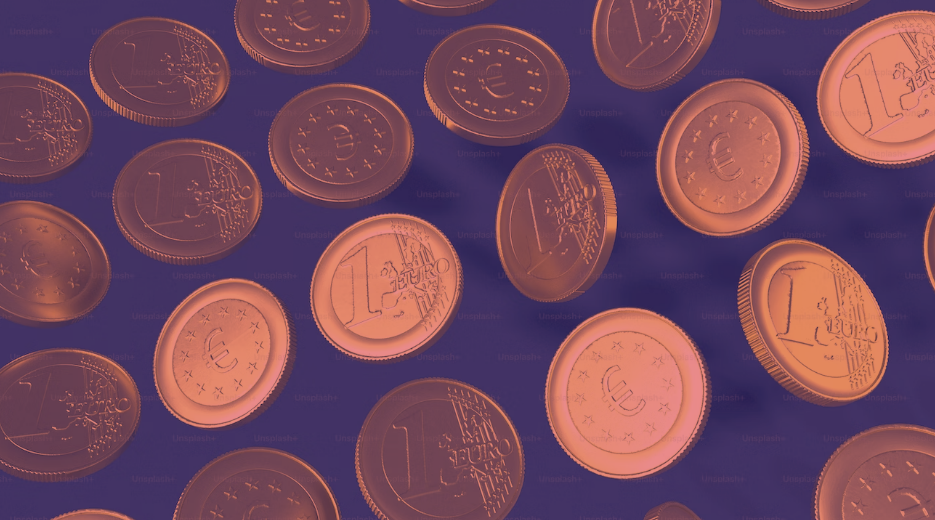
Written by Elodie Arpa, Ambassador to Austria
This year the Euro celebrates its 20th anniversary. 19 EU-member states use the Euro as their national currency, which means more than 340 million Europeans trade with it on a daily basis (a figure which outnumbers the population of the US). 60 additional states have linked their national currencies to the Euro; this makes the Euro the 2nd most traded currency worldwide.
The Euro as a common currency has widely been accepted by the EU-population. On average, 62% of EU-citizens have a positive view of the Euro. In certain countries such as Germany the acceptance rates are even higher (76%), and in Italy the majority of people (58%) see the Euro positively. Never since its initiation has the Euro been so popular!
The EU as a Monetary Union has seen much progress in recent times. However, the Economic Union is still an assembly of sovereign member states. The principle of unanimity in many policy areas hinders the EU to make effective and – if needed – prompt decisions. It also inhibits Europe to express its interests with one united voice when faced with challenges in the world economy.
And it’s here that things have to change!
Economic policy areas should become an exclusive competence of the European Union, like trade and monetary policy are already. Currently, big companies relocate their seats to member states where they have to pay the least amount of taxes. Because of this, member states get played off against each other (which weakens the Euro area as a whole). This is why a common budgetary and fiscal policy is urgently needed. As a coordinator of these policies and to have a representative of the EU on the international level, a European Minister of Finance would be a major improvement. Also, the member states, which are currently represented separately at the International Monetary Fund, should regroup and let themselves be represented as one. This way Europe, although at times representing diverging monetary interests, could make its interests better heard, and would be taken more seriously when negotiating on matters of world economy.
To provide a common budgetary and fiscal policy, and to increase Europe’s attractiveness for foreign investors, a European Money Market should be created. In such an environment, European Safe Bonds could provide alternatives to American Treasury Bonds worth considering. These two measures would immensely upgrade the Euro area. At present the US has a heavy influence on international investors and hence on foreign governments by hosting the majority of rating agencies. To diversify the current situation and therefore ensure objectivity, the EU should seek to have at least one major rating agency in Europe itself. In addition, the “capital market action plan” by the European Commission, which sets out a list of key measures to achieve a true single market for capital in Europe, has to be put into action.
After the financial crisis of 2008, the Euro-area has gradually loosened structural links between banks and states. In order for the EU to better cope with financial difficulties in the future, the European Stability Mechanism (ESM) and the Single Resolution Board (SRB) have been created. To prevent the phenomena of “too big to fail” to happen again in the first place, the remaining open issues in the area of financial market supervisions such as higher bank-equity ratios for government bonds or the establishment of the European Deposit Protection Fund (EDIS) should be settled.
Despite these new safety precautions, nationalist parties all over Europe treat the Euro as their enemy and attack the Economic and Monetary Union incessantly. The right-wing party “Rassemblement national” of Marine Le Pen openly states that she wants France to leave the Euro and return to a national currency. Attempts like these place the further development of the Euro-area under threat. In case nationalist parties grow to become a blocking minority, they will undoubtedly inhibit the advancement of the Economic and Monetary Union.
However, if the Euro-area happens to enforce the cooperation of its member states and presents itself as united on the international level, Europe could indeed become a credible counterweight to other economic powers such as the US, China or Russia. Especially the US turning its back on multilateralism under President Trump, could be seen as a chance for Europe to further establish itself on the global economic stage.
While the Economic and Monetary Union aspired to make the EU a serious competitor on the international level and guarantee prosperity for its citizens, its main aim was – and still is – to transform a continent of bloodshed into a peaceful one. The beginning of the 20th century let us painfully witness that peace accords can be violated at any time. With this knowledge in mind, the European Coal and Steel Community was established in 1951. European countries have become economically interdependent, making it impossible for them to wage war against each other without fearing a financial break down of their own state.
If history has taught one thing, it is this: Nations sharing one and the same currency cannot afford to engage in military conflicts with one another. Thus, the Euro is more than a currency alone. It is a way for citizens to come closer to their European identity. It has brought intra-EU-mobility to a whole new level. It has abolished the last trade barrier between member states. And it has ensured peace.
This shows us that despite the necessary future developments we have to aim for, the Euro as such is still worth being celebrated: So Happy Birthday!
Born in Brussels to a French mother and an Austrian father, Elodie always considered herself a European citizen, first and foremost. Witnessing the major crisis the EU is currently facing, she decided to take action and engage in the European project.
Elodie has an intense passion for writing – whether it is columns, essays or poetry. She published several articles on EU related issues in newspapers. After her graduation from high school she wrote an open letter on the topic of education addressed to Austrian political representatives.
Apart from writing, Elodie has a special interest in advocating fundamental rights, tolerance and equality. She was the winner of the national multilingual speech competition “SAG’S MULTI”. In May 2018 she was the concluding speaker of the memorial ceremony for victims of the Nazi-Regime and against violence and racism, organised by the Austrian Parliament.
After her summer internship in Paris, Elodie is now studying law at the University of Economics in Vienna.

 The ’Ndrangheta’s Infiltration and Threat to European Institutions
The ’Ndrangheta’s Infiltration and Threat to European Institutions  From Paper to Practice: How Grassroots Norms Undermine Gender Rights in Pakistan
From Paper to Practice: How Grassroots Norms Undermine Gender Rights in Pakistan  Exploited Childhoods: The Role of Global Corporations in Perpetuating and Mitigating Child Labour
Exploited Childhoods: The Role of Global Corporations in Perpetuating and Mitigating Child Labour  Human Rights Challenges in Addressing SLAPPs in Media, NGOs and Journalism in the EU
Human Rights Challenges in Addressing SLAPPs in Media, NGOs and Journalism in the EU 


